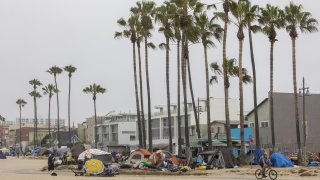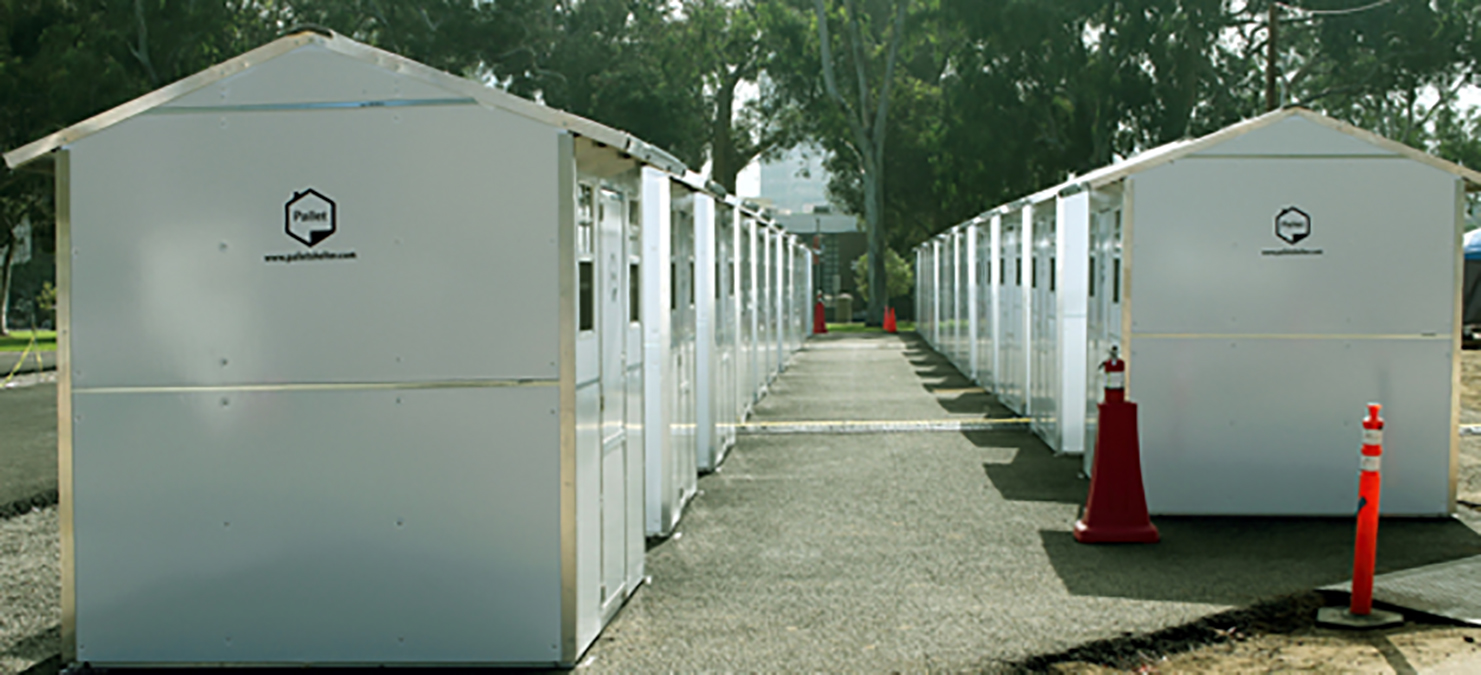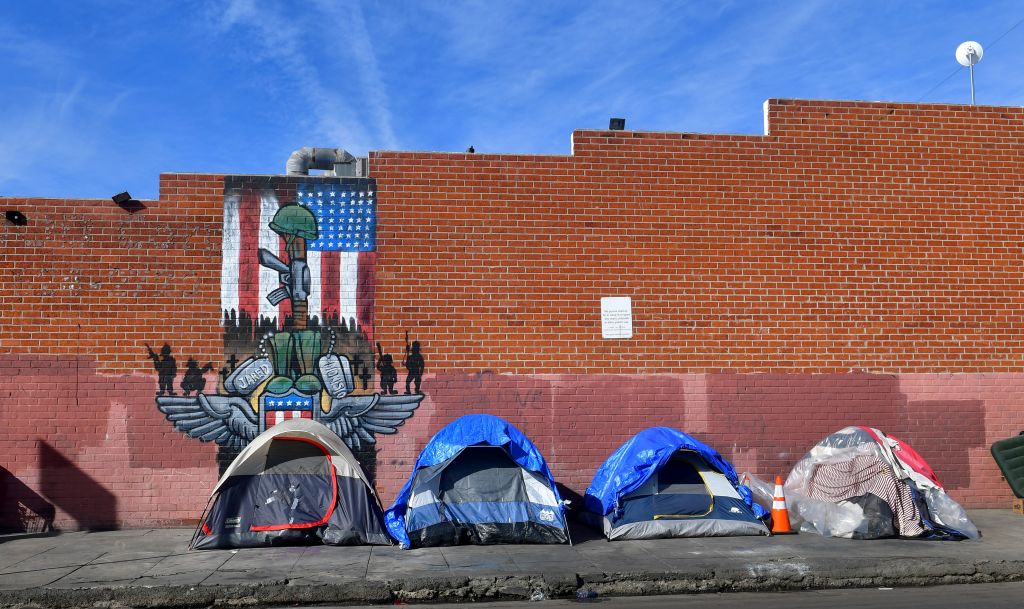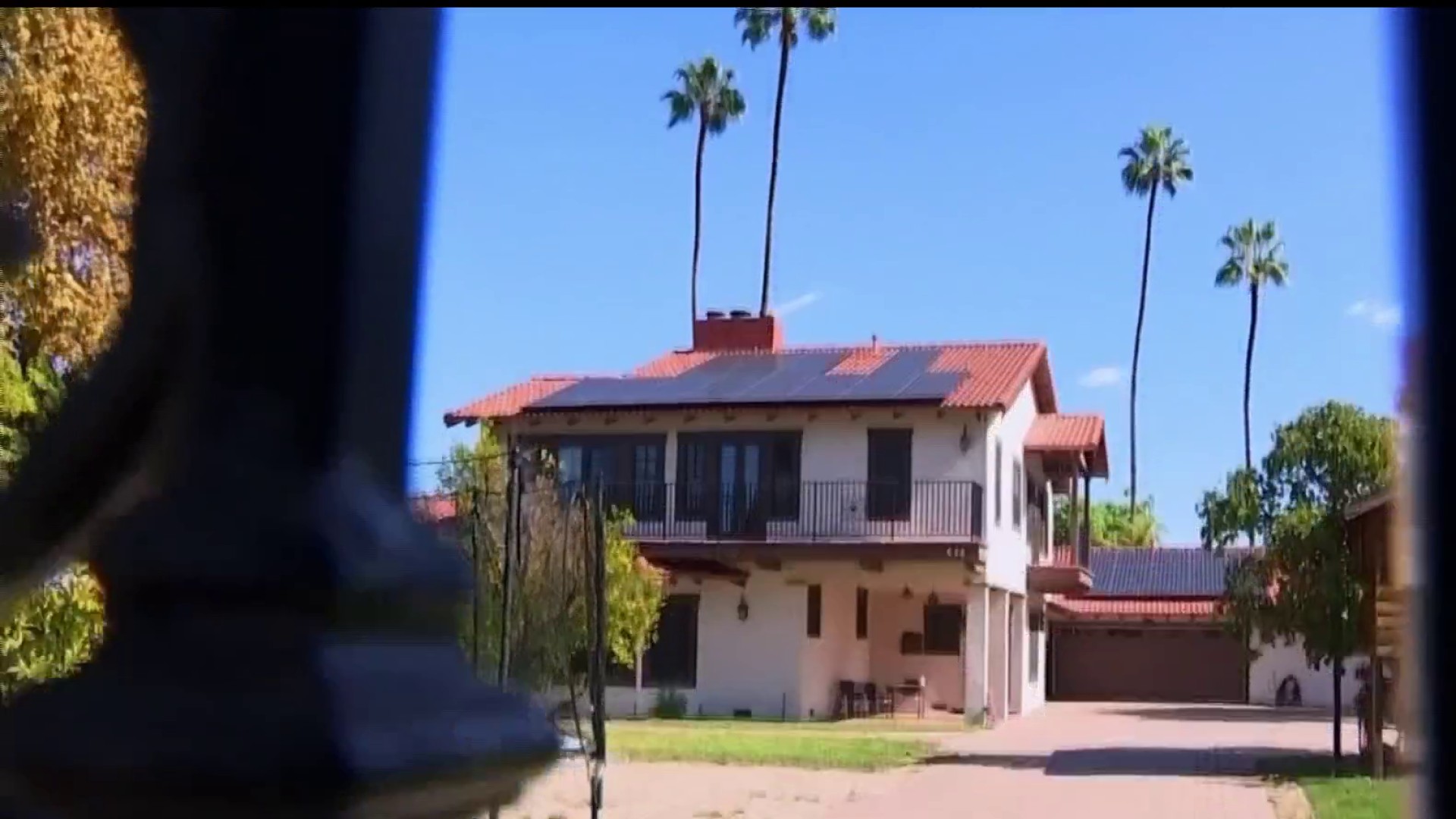
The Los Angeles City Council has approved nearly $2 million to fund homeless outreach teams and other positions related to its street engagement strategy designed to accompany enforcement of the city's new anti-camping law.
The funding includes:
- $260,000 to fund new homeless engagement teams for three months;
- $750,000 to support six months of funding for 15 homeless outreach program coordinator positions, one per council district, to facilitate coordination of the council member's homeless outreach activities;
- $625,105 for City Administrative Officer positions to provide outreach coordination and oversight to meet ongoing homelessness-related activities; and
- $306,675 to provide management oversight of the Bureau of Sanitation's homeless encampment cleanup services.
The City Council on Oct. 20 began passing resolutions to enforce the city's law to prohibit sleeping, sitting, camping and obstructing the public right of way at several locations.
Get top local stories in Southern California delivered to you every morning. >Sign up for NBC LA's News Headlines newsletter.
The City Council on Friday approved six locations in Councilman Kevin de Leon's district for enforcement of the ordinance, including areas near a park and shelters.
Though the teams had not been funded until Friday's motion, Patty Huber of the City Administrative Office told City News Service the locations selected for enforcement had been evaluated by the Los Angeles Homeless Services Authority, which provided outreach and completed the necessary assessment forms in compliance with the street engagement strategy.
Under the strategy, developed by the CAO and the Chief Legislative Analyst, the following steps are supposed to be followed before a resolution is voted on by City Council:
- a City Council member introduces a resolution selecting locations for enforcement;
- the Los Angeles Homeless Services Authority and Council offices identify service and housing resources needed and their availability, develop an outreach plan and determine a time frame needed to execute the street engagement strategy;
- daily performance reports and an end-of-engagement summary report is made available to Council Office, the Los Angeles Housing Department and the city's homeless coordinator regarding client contracts, engagements, services and referrals offered and other housing-related outcomes for outreach services; and
- a final cleanup date is determined and communicated to staff, and a formal documented "offer of housing" report is provided by LAHSA.
Councilman Kevin de Leon's office did not provide information on the extent to which each step was followed before the vote on Friday, but the councilman said during the meeting that his office is "leading with a housing solution for everyone who is forced to sleep on the sidewalk in these very specific locations."
He said his team connected:
- 35 unhoused people at the intersection of Sixth and Main streets in downtown Los Angeles with shelter at the L.A. Grand Hotel through the Project Roomkey program;
- 23 unhoused people near Hollenbeck Park in Boyle Heights with shelter at the LA Grand Hotel through the Project Roomkey program;
- more than 100 unhoused people in El Sereno with shelter at two Project Homekey locations on Huntington Drive, "steps away" from where they were camping; and
- 24 unhoused people near the 7500 block of Figueroa Street in Eagle Rock with shelter at a Project Roomkey location, and that group will get priority for placements at a currently-under-construction Tiny Home Village on the same block.
"When we move folks, we don't move folks just to move folks, we move folks and we find the housing for them, whether it's temporary or permanent or a combination thereof," de Leon said.




